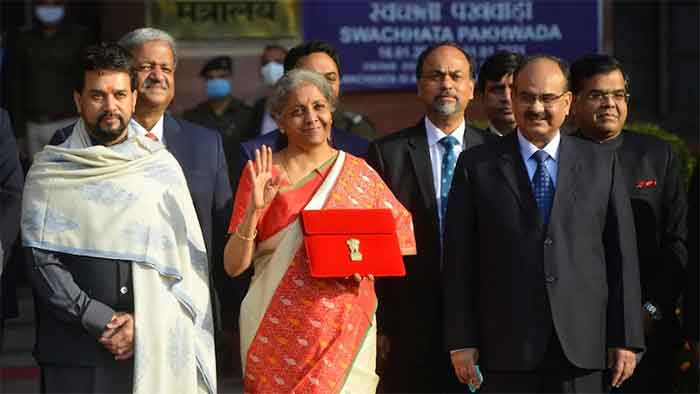
The forthcoming union budget is considered to be of extraordinary importance as it is being presented in the middle of a serious economic crisis. More specifically there are exceptionally high under-achievements regarding GNP and revenue receipts combined with very pressing needs of several sectors at the same time.
Whatever the constraints, the budget of health and education sectors has to increase considerably, as also that for agriculture and NREGA or rural employment guarantee scheme. In addition the government needs to keep in mind that the allocations for pensions under the National Social Assistance Program have stagnated for a very long time and need to be increased in these difficult times. Allocations for welfare schemes of Scheduled Castes, Scheduled Tribes and Minorities should also increase. A scheme for employment guarantee for urban poor based on NREGA in rural areas but designed according to urban needs has been frequently discussed in recent times and surely its need is now even greater than before. Environment protection has suffered from neglect and allocation for this, particularly for checking climate change, air and water pollution should increase.
While the need to increase expenditure on social sector has been emphasized several times, what should not be ignored are the details regarding how the additional expenditure will be spent. It has been often the experience that when more food is poured in a pool for fish, the crocodiles come forward to grab it and the hungry fish can get at best only a small share of what was meant for them. The discussion often takes more in the context of overall allocations, but more details are needed on how the sectoral budget is distributed to get a better understanding.
Thirdly, there is the question of how the resources will be raised for meeting the much higher needs of several sectors. There has been increasing evidence that inequalities have increased greatly during this financial year and so fiscal policy should be used to decrease these inequalities and at the same time raise much needed resources for meeting very pressing social and relief needs from those who have benefited the most from increasing inequalities and have even achieved windfall gains in very exceptional conditions. Hence the government should not hesitate to tax the richest sections and the 100 or so billionaires much more heavily this year , targeting particularly those billionaires and corporations who have made exceptionally high gains in overall exceptionally difficult conditions for common people and weaker sections. Several specific suggestions regarding the possibilities of raising additional resources by targeting the richest or richer sections more this year have been made, and these include those made by thoughtful public spirited revenue officers in a document generally referred to as the FORCE document. One hopes that the government makes good use of such suggestions, particularly those by its own revenue officers who are more familiar with practical realities, while giving relief to common people in tax proposals.
In particular it will be very welcome if the government takes a strong step forward with this budget in the direction of economic recovery which is led by substantial relief to weaker sections and more purchasing power in their hands, combined with improving the capacity of health, education and social security sectors to help them more and better, while at the same ensuring overall reduction of inequalities.
Bharat Dogra is a journalist and author. His recent books include Protecting Earth for Children and Man Over Machine.
IF YOU LIKED THE ARTICLE SUPPORT PEOPLE’S JOURNALISM













































